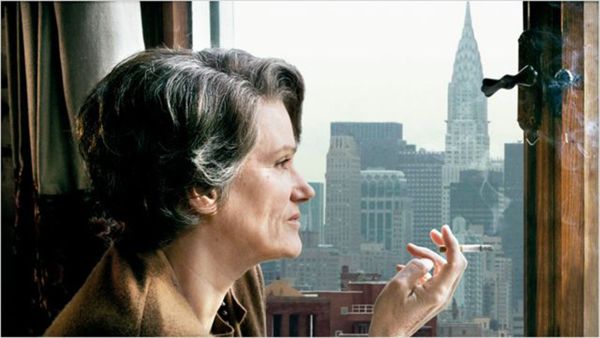Hannah Arendt

Actor and director Margarethe von Trotta is no stranger to political biography. Having directed Rosa Luxemburg (1986), a portrait of the famous German social democrat, her latest film explores the life of Hannah Arendt, one of the most important political theorists of the 20th century. Focusing on four years in Arendt’s life from 1961, the film examines how Arendt developed her famous theory of the “Banality of Evil” after reporting on the trial of Adolf Eichmann, the only Nazi to be tried in Jerusalem.
Trotta’s unashamedly theoretical film combines biography with real footage from the trial of Eichmann. Arendt, a notorious chain smoker, watched much of the trial on TV in the court press room, which proves a useful and seamless way for Trotta to introduce the footage. Like Arendt, Trotta is keen for her audience to see the mediocrity of Eichmann and the fact that he was not the monster that many had expected him to be, but instead a pathetic little bureaucrat, desperate to follow the rules to the last.
Arendt, portrayed brilliantly by Trotta favourite Barbara Sukowa, was of German-Jewish descent and had spent time in a French detention camp before escaping to New York with her husband Heinrich Blücher. It is her ability to separate her emotional responses from the facts of the case that enables her to carry out her game-changing work. The world however, and in particular the Jewish community leaders whom she has partly implicated in the destruction of their own people, are not ready for it.
Despite the dark and troubling subject matter, this film is at its heart about Arendt’s belief in love and friendship, even amid all the horror she has seen. Trotta focuses on the relationship between Arendt and Blücher with much obvious affection, while also finding room to include the other men in her life: her long-time friend Hans Jonas, and her former teacher and first love, the philosopher Martin Heidegger (who became a Nazi himself).
It is clear throughout that Trotta has a deep fondness for her protagonist, and while the film is not overly ambitious in terms of cinematography, Sukowa’s powerful performance carries the audience through all the theory to a blistering final speech, which compels us to share Trotta’s admiration for this brilliant woman.
Nichola Daunton
Hannah Arendt is released nationwide on 27th September 2013.
Watch the trailer for Hannah Arendt here:























Facebook
Twitter
Instagram
YouTube
RSS